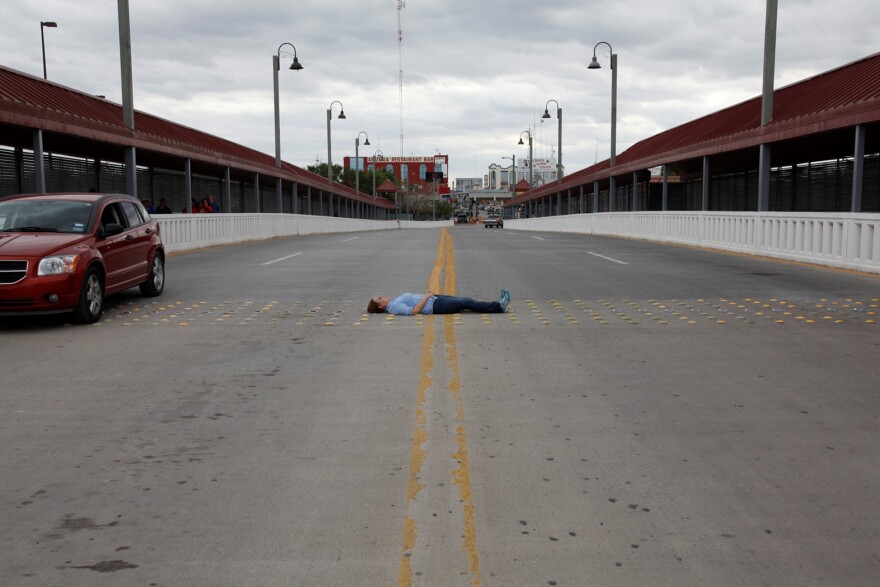Hi I’m Valerie a radio reader from Topeka and I wanted to share my thoughts about our final book which is part of this fall’s Radio Readers theme of “Rivers: Meandering Meanings”, the book is the Line Becomes a River by Francisco Cantú.
I’ve read a lot of books about the Border and have studied the history of the Mexican/US border for many years. The first thought that comes to mind as I think about this is that the border between the US and Mexico has changed many times over the years. For instance, many people don’t know that when Mexico first became a country the border extended to the southwest corner of what is now Kansas. Another thought is how geo-political borders are for the most part lines draw at whim by those in power at any given time and the whole notion of borders creates an us and a them dynamic.
I just started reading Cantú’s book and two things stick out to me right from the get go. First, he dedicates the book to his mother and grandfather and all those “who risk their souls to traverse or patrol an unnatural divide.” There’s so much to unpack in that short phrase. First, through his work as a border patrol agent, he learned or came to realize that the decision to leave your homeland, make an exceedingly dangerous journey to a country where you don’t speak the language, know the customs, and most likely have no friends or relatives requires a lot of bravery. He also acknowledges that those who choose to try to cross the border will experience trials and tribulations that eat away at their very humanity. Second is his nod to the fact that being a border patrol agent is not easy and also takes its toll on the human spirit. One must track and hunt fellow human beings and death is a near daily occurrence due in part to the harsh conditions and terrain of the border. Third is the author’s realization that socio-political borders between countries are a man-made constructs, an “unnatural divide” and the fact that the border between Mexico and the US have changed numerous times only serves to heighten that.
The other thing I related to with the beginning of this book is when his mother asks him why he is working for the Border Patrol. She doesn’t understand why he would want to work in law enforcement and has a hard time explaining his choice to her friends and relatives. He tells her he wants to understand the border, not just study it as he did in college. He elaborates, “there’s something here I can’t look away from. Maybe it’s the desert, maybe it’s the closeness of life and death, maybe it’s the tension between the two cultures we carry inside us. Whatever it is, I’ll never understand it unless I’m close to it,” (23).
A couple of things stand out to me about this passage, first is his understanding that many of us who are Mexican American carry a tension inside of us between being American but not American enough because we are brown. There’s also the pride we carry with us in our ancestral culture that we cannot turn our backs on. The second thing that strikes me is his desire to know a place. This resonated with me in terms of my being a Kansan and how much the land speaks to me. I’ve mentioned this before in my comments about some of the other books we’ve read as part of our group. It also made me think about how the other two books in our HPPR Radio Readers series this fall, Huck Finn and Elevations, are also deeply rooted in knowing a place and a river specifically.
I’ve really enjoyed getting to know these river scapes this fall and I hope you have too. I look forward to learning more about the Rio Grande through Cantú’s eyes as I continue reading the Line Becomes a River. Let me know what you think about this idea of place. I’m Valerie, an HPPR radio reader from Topeka.









